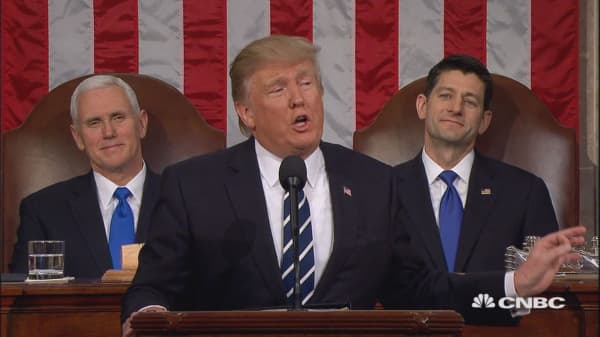Though short on details, President Donald Trump redoubled his commitment Tuesday night to "repeal and replace" the Affordable Care Act.
In a speech to a joint session of Congress, Trump vowed to "decisively to protect all Americans." from a "broken" health-care system.
"The way to make health insurance available to everyone is to lower the cost of health insurance," Trump said to sustained applause. "And that is what we are going to do."
Congressional Republicans are eagerly anticipating their long-awaited chance to repeal the 6-year-old Affordable Care Act, one of the signature achievements of the Obama administration.
That enthusiasm may be dampened, though, as they hammer out the details of a replacement that lowers health costs for American households.
For starters, repealing Obamacare will cost the federal government as much as $350 billion, according to a recent analysis by the nonpartisan Committee for a Responsible Budget.
Most of the law's opponents have focused on the added cost of subsidizing health insurance. But the law also includes dozens of provisions that cut health care and raise taxes that more than offset the money spent.
Despite the GOP's steadfast opposition to the law, that net cost of repealing it could give pause to the party's fiscal hawks on Capitol Hill.




